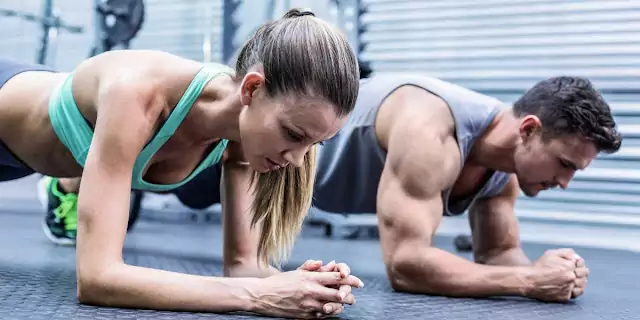When you exercise, your body is programmed to “respond by telling your cells to grow”, and conversely, when you don’t exercise, “your body is telling your cells to die”. This according to Dr. Lodge, author of Younger Next Year (Workman Publishing 2007), is because for billions of years animals have had to face two challenges. In the spring, there was food abounding, and the body needed vigor and vibrant life to feed and strengthen the hungered state brought on by the frigid winter. Yet when the winter came about the body needed to adapt to fewer resources and needed to decay to deal with the limitations of the environment. In effect physical activity promotes slower aging by affecting you on the cellular level. Because you are made of trillions of cells, it is this level that is the foundation of your health. Efficient cells build strong hearts, functioning kidneys and a body that works as it should.
Though your body is unable to comprehend that it no longer has to face these environmental challenges it still has the same biological response to activity and inactivity. It is not the food intake that signals your cells to decay or be vibrant, but the motion of your body that releases from your muscles specific substances that tell your cells to grow.
Recent Research on Exercise and Aging
The physiological reason for this may be due to what Tim Spector, professor of genetic epidemology at King’s College in London found in a study he published in the Archives of Internal Medicine (January 2007) that examined the telomeres of people who exercise. Telomeres are the caps at the end of chromosomes, similar to the tips of shoelaces, that prevent the chromosome strands from unraveling. As you age and cells divide, the telomeres become shorter and shorter and eventually prevent the chromosome from being able to duplicate itself. When enough telomeres fail to duplicate themselves we then see the signs of what we call aging, weaker muscles, bones that are less dense and organs that no longer function optimally.
Spector and his colleagues set out to examine whether there would be a correlation between the amount of exercise that the subjects participated in and the condition of their telomeres. In a ten year study that involved 2,401 British twins the researchers analyzed the telomeres in the twins to examine if there might be a relationship between the amount of exercise that the subjects participated in and the condition of their telomeres.
The study ended up showing a correlation between the length of the telomeres and the activity level of the subjects. 1 hour and 20 minutes of moderate activity per week resulted in telomeres that looked 5 to 6 years younger than those subjects who did only 16 minutes of activity per week. Yet subjects who participated in 3 hours of moderate to vigorous activity per week resulted in telomeres that looked 9 years younger than those who did only 16 minutes of activity per week.
You Can Change at Any Time
Dr. Henry Lodge encourages his patients to be active by giving them hope. Men and women both can double the strength in their leg muscles within three months of exercise and this relates to you even if you’re 90 years of age. He says you replace about 1% of your cells everyday, and so in a sense, you get a whole new body every three months. You are constantly making a choice about how to age, he says, and you are always getting a new opportunity to take charge of the process by making positive changes in your life style.
